Tuition-free policy needs to go hand in hand witheducation quality assurance mechanism.
Speaking at the discussion group on the afternoon of May 22, National Assembly deputies agreed to issue a Resolution of the National Assembly on tuition exemption and support for preschool children, general education students and learners of general education programs at educational institutions in the national education system.
This is a great policy, deeply humane, vividly demonstrating the superior nature of our regime, and is a big step forward on the journey to ensure equal and comprehensive access to education for all people.
Delegate Bui Hoai Son ( Hanoi City Delegation) stated that, unlike the scattered regulations in the 2019 Education Law and Decree No. 81/2021/ND-CP - which only stipulate tuition exemption and reduction for some groups of subjects, this draft Resolution expands the scope of beneficiaries to include: preschool children under 5 years old, high school students, people studying general education programs at regular educational institutions and especially students of private and non-public institutions.
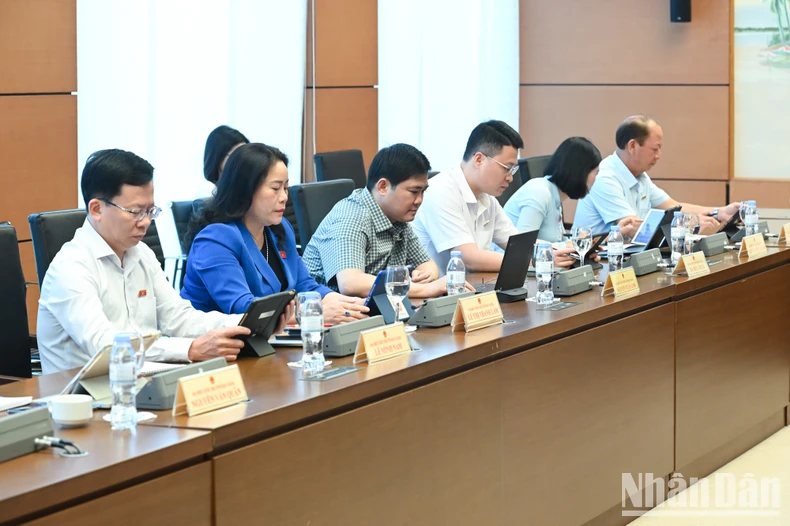 |
National Assembly delegates attend the group discussion. (Photo: BUI GIANG) |
“This policy not only removes financial barriers for learners but also ensures fairness between public and private schools, between urban and rural areas, and between formal and informal students,” the delegate emphasized.
Regarding funding and conditions to ensure implementation, according to the Government's Proposal, the total additional budget needed to implement tuition exemption and support is about 8,200 billion VND per year, in which Hanoi - with a large population and high school density - is certainly the locality under great budget pressure.
However, delegates affirmed that this is a correct, accurate and worthy investment, because it not only helps reduce the financial burden on families - especially after the Covid-19 pandemic and in the context of escalating living costs - but also has a spillover effect on social consumption, strengthens trust in the regime, and creates a foundation for future human resources.
In terms of long-term impact, this policy opens up a “fair corridor” for us to move towards universal 12-year education in the future.
“Free education is not only a social policy, but also a moral commitment, demonstrating a vision for development. When high school students do not have to pay tuition fees, learners will have more equal access to knowledge, reducing the rate of dropping out of school due to economic circumstances, especially in large cities like Hanoi, where income stratification is deep,” said delegate Son.
In addition, delegates recommended that the National Assembly and the Government should combine the tuition exemption policy with a mechanism to ensure education quality. At the same time, review the budget allocation by region to avoid equalization, causing excessive pressure on the provincial and commune/ward budgets.
Need a reasonable implementation roadmap and priority to avoid sudden pressure on the budget
Participating in the discussion, delegate Nguyen Thi Viet Nga (Hai Duong delegation) said that the policy of exempting and supporting tuition fees is suitable for the current context of the country, when we are promoting the development of high-quality human resources, while facing many challenges such as the rich-poor gap, pressure on living costs, and the need to improve labor productivity to serve the strategy of sustainable socio-economic development.
Given that the income of many households, especially in rural and mountainous areas, is still low, exempting tuition fees is practical, contributing to reducing financial burdens, preventing school dropouts, and creating conditions for all children to go to school.
For effective implementation, delegates raised three groups of issues that need special attention. First of all, the budget allocation and management mechanism needs to be designed tightly and transparently.
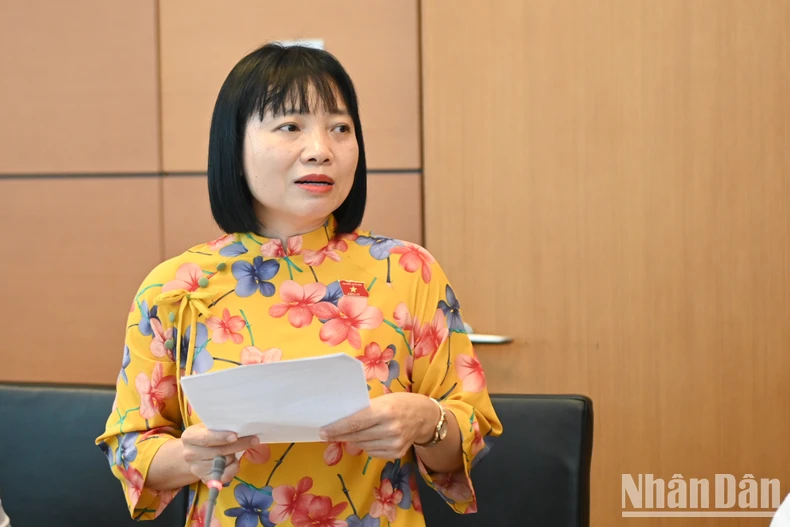 |
Delegate Nguyen Thi Viet Nga (Hai Duong Delegation) expressed her opinion during the discussion session. (Photo: BUI GIANG) |
According to the delegate, the estimated budget of about 9 trillion VND per year is not small. Therefore, determining the objects, scope, level of support, as well as payment methods requires specific guidance to avoid spreading, loss, or taking advantage of the policy.
It is necessary for the Provincial People's Council to decide on the level of support, but there needs to be a unified guidance framework from the Central Government to ensure fairness among localities, especially those provinces with budget difficulties.
In addition, delegates said that there should be a reasonable implementation roadmap and priority order. In the context of limited resources, priority should be given to universal education levels - especially 5-year-old children, primary and secondary school students. For preschool students (under 5 years old) and high school students, a suitable roadmap can be calculated to gradually expand the scope of tuition exemption and support, avoiding sudden pressure on the budget.
Another issue emphasized by the Russian delegate is ensuring fairness between public and non-public school students and between educational models in the national education system.
According to the current proposal, public school students will be exempted from all tuition fees, while students at non-public institutions will receive tuition support, with the funding provided directly to the students. However, in reality, tuition fees at non-public schools are often much higher than those at public schools, because they do not receive investment in facilities and salaries from the state budget.
Without specific regulations, it may lead to a situation where a student at a non-public school receives higher tuition support than the tuition exemption for a student at a public school. This is something that needs special attention to avoid policy paradoxes and ensure fairness in accessing budget resources.
The delegates proposed to clearly define the principle: The amount of tuition support for non-public students must not exceed the tuition exemption at public educational institutions corresponding to the level of education and the locality. At the same time, to effectively implement this policy, the State needs to develop and promulgate standard tuition fees for each level of education and each school year - as a basis for calculating appropriate exemption and support levels, consistent between school types and between localities.
In addition, the delegate said that the tuition support policy is only part of the overall picture; it is necessary to consider synchronous support mechanisms and policies for organizations and individuals investing in non-public education, such as: tax incentives, land access, preferential credit, or support for teacher training and development. "Only when the entire education system - both public and non-public - is supported to improve quality, will the people's right to education be truly guaranteed in a fair and sustainable manner," the delegate stated.
Source: https://nhandan.vn/mo-ra-hanh-lang-cong-bang-de-tien-toi-pho-cap-giao-duc-12-nam-trong-tuong-lai-post881617.html


![[Photo] Prime Minister Pham Minh Chinh chairs the Government's special meeting on law-making in May](https://vphoto.vietnam.vn/thumb/1200x675/vietnam/resource/IMAGE/2025/5/22/1c880aae96fd4e0894abc47a46fe19ba)

![[Photo] General Secretary To Lam chairs a working session with the Central Internal Affairs Commission](https://vphoto.vietnam.vn/thumb/1200x675/vietnam/resource/IMAGE/2025/5/22/3b7790f499da45b2803d8ae253207ef1)

![[Photo] Press delegation meeting to visit Truong Sa and DK1 Platform](https://vphoto.vietnam.vn/thumb/1200x675/vietnam/resource/IMAGE/2025/5/22/6b8d232877ec421a9e8187d83b9f8006)
![[Photo] Prime Minister Pham Minh Chinh chairs meeting on draft Resolution of National Assembly on International Financial Center in Vietnam](https://vphoto.vietnam.vn/thumb/1200x675/vietnam/resource/IMAGE/2025/5/22/d398664ff1a140629169ea5a24e1b4d0)
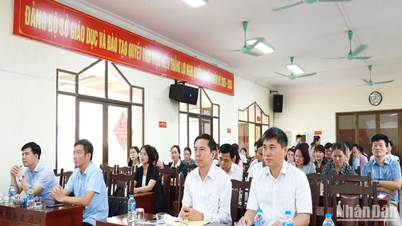
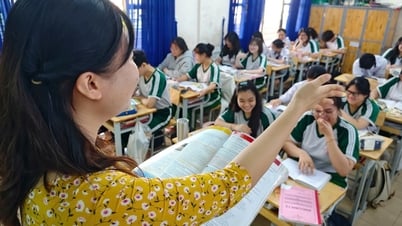

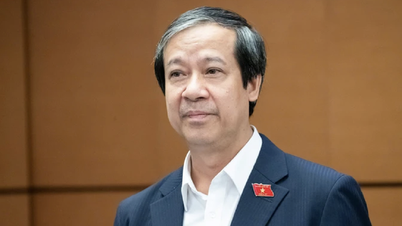


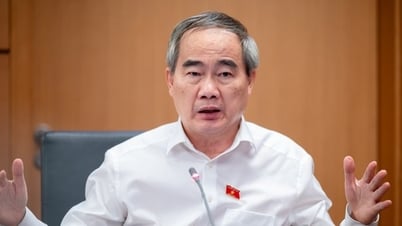

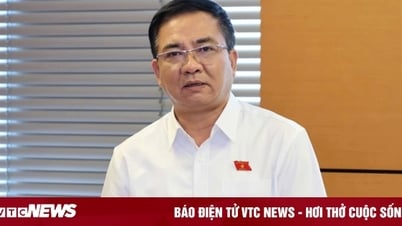







![[Photo] Prime Minister Pham Minh Chinh chairs meeting on draft Resolution of National Assembly on International Financial Center in Vietnam](https://vphoto.vietnam.vn/thumb/402x226/vietnam/resource/IMAGE/2025/5/22/d398664ff1a140629169ea5a24e1b4d0)
![[Photo] Press delegation meeting to visit Truong Sa and DK1 Platform](https://vphoto.vietnam.vn/thumb/402x226/vietnam/resource/IMAGE/2025/5/22/6b8d232877ec421a9e8187d83b9f8006)
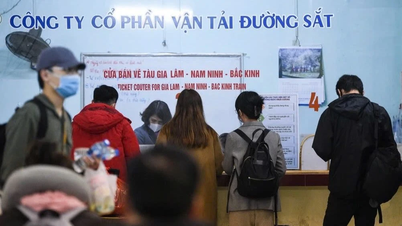

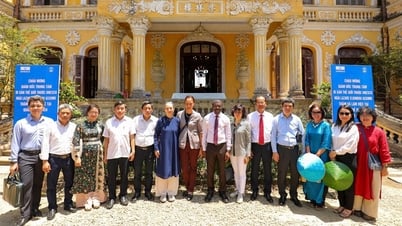








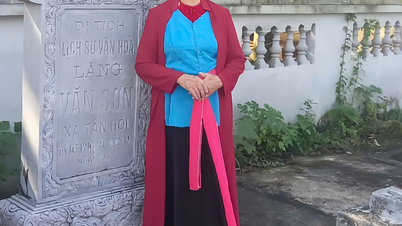























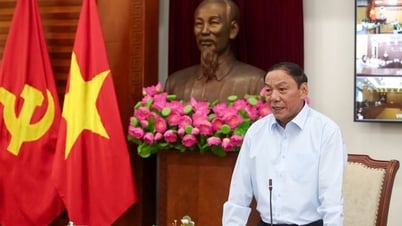

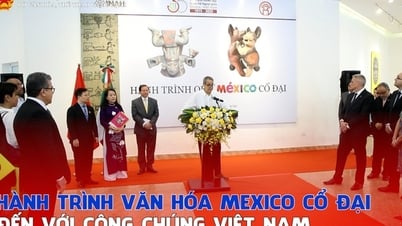






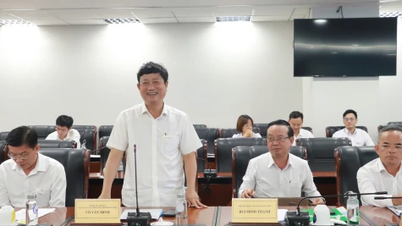




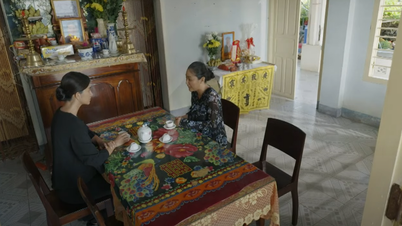







![[Podcast] Week introducing more than 500 OCOP products in Hanoi](https://vphoto.vietnam.vn/thumb/402x226/vietnam/resource/IMAGE/2025/5/22/d144aac2416744718388dbae3260e7fd)





Comment (0)